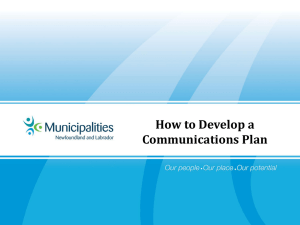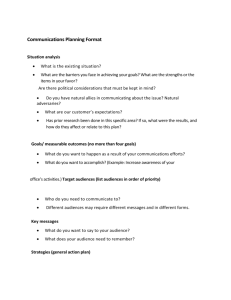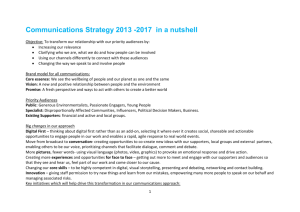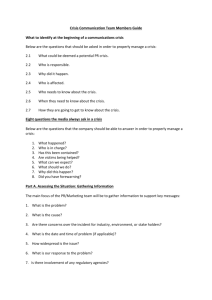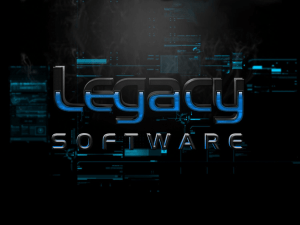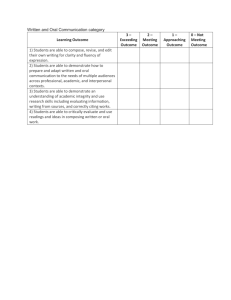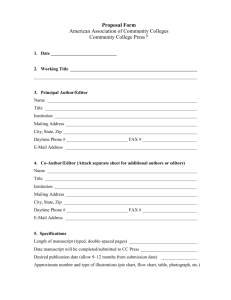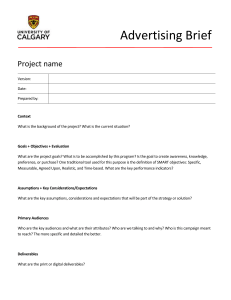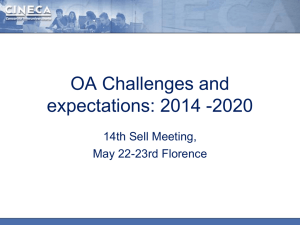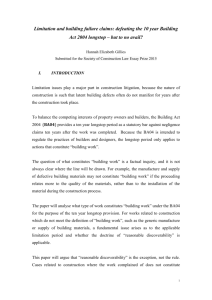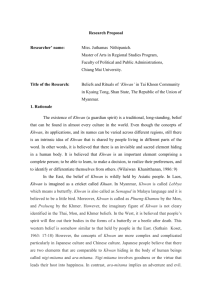Title in heading level 1 style
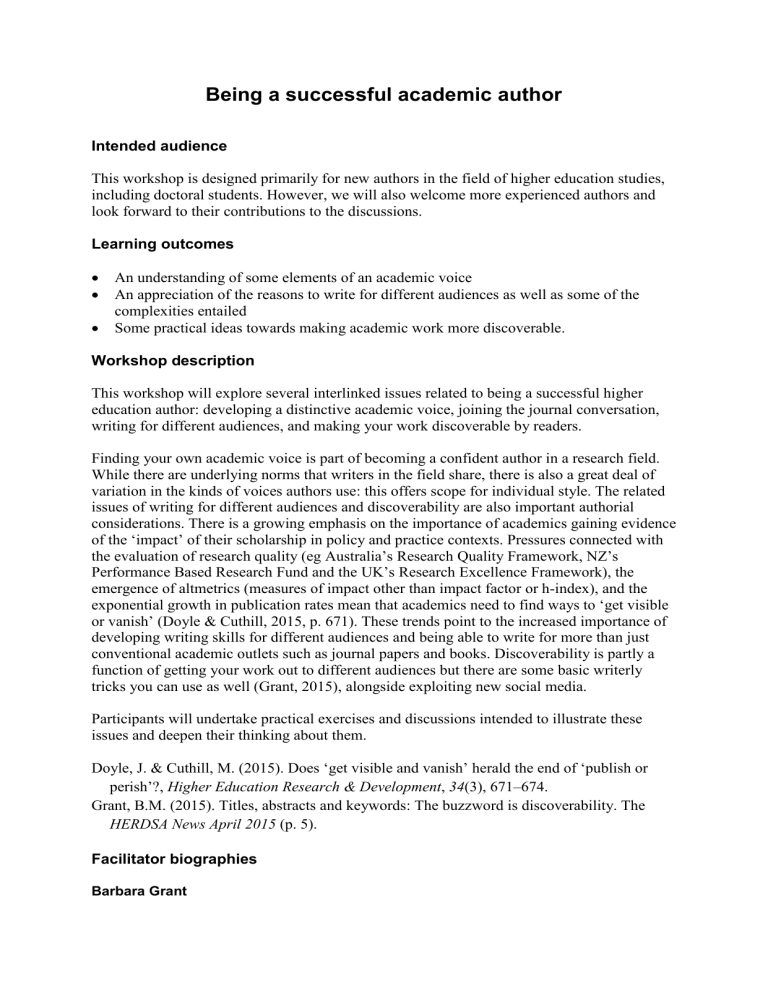
Being a successful academic author
Intended audience
This workshop is designed primarily for new authors in the field of higher education studies, including doctoral students. However, we will also welcome more experienced authors and look forward to their contributions to the discussions.
Learning outcomes
An understanding of some elements of an academic voice
An appreciation of the reasons to write for different audiences as well as some of the complexities entailed
Some practical ideas towards making academic work more discoverable.
Workshop description
This workshop will explore several interlinked issues related to being a successful higher education author: developing a distinctive academic voice, joining the journal conversation, writing for different audiences, and making your work discoverable by readers.
Finding your own academic voice is part of becoming a confident author in a research field.
While there are underlying norms that writers in the field share, there is also a great deal of variation in the kinds of voices authors use: this offers scope for individual style. The related issues of writing for different audiences and discoverability are also important authorial considerations. There is a growing emphasis on the importance of academics gaining evidence of the ‘impact’ of their scholarship in policy and practice contexts. Pressures connected with the evaluation of research quality (eg Australia’s Research Quality Framework, NZ’s
Performance Based Research Fund and the UK’s Research Excellence Framework), the emergence of altmetrics (measures of impact other than impact factor or h-index), and the exponential growth in publication rates mean that academics need to find ways to ‘get visible or vanish’ (Doyle & Cuthill, 2015, p. 671). These trends point to the increased importance of developing writing skills for different audiences and being able to write for more than just conventional academic outlets such as journal papers and books. Discoverability is partly a function of getting your work out to different audiences but there are some basic writerly tricks you can use as well (Grant, 2015), alongside exploiting new social media.
Participants will undertake practical exercises and discussions intended to illustrate these issues and deepen their thinking about them.
Doyle, J. & Cuthill, M. (2015). Does ‘get visible and vanish’ herald the end of ‘publish or perish’?,
Higher Education Research & Development , 34 (3), 671–674.
Grant, B.M. (2015). Titles, abstracts and keywords: The buzzword is discoverability. The
HERDSA News April 2015 (p. 5).
Facilitator biographies
Barbara Grant
The University of Auckland, Auckland, bm.grant@auckland.ac.nz
Barbara is the Executive Editor of HERD and a highly published author in higher education.
Her main area of research expertise is the supervision of graduate research students, but she has also researched and published in a several other areas in the field, including academic development, researcher identity, research methodologies, and academic writing.
Bruce Macfarlane
University of Southampton, Southampton, bmachku@gmail.com
Bruce is special issues editor of HERD . His publications have developed concepts related to academic ethics, intellectual leadership and student academic freedom. He is joint editor of
Policy Reviews in Higher Education and a Fellow of the Society for Research into Higher
Education.
Tai Peseta
The University of Sydney, Sydney, tai.peseta@sydney.edu.au
Tai is Points for Debate Editor of HERD . She has written mainly on the moral project of academic development with a particular interest in connecting it with debates about changing ideas of the university. She has also published on aspects of the scholarship of teaching, academic identity, and research supervision development.
